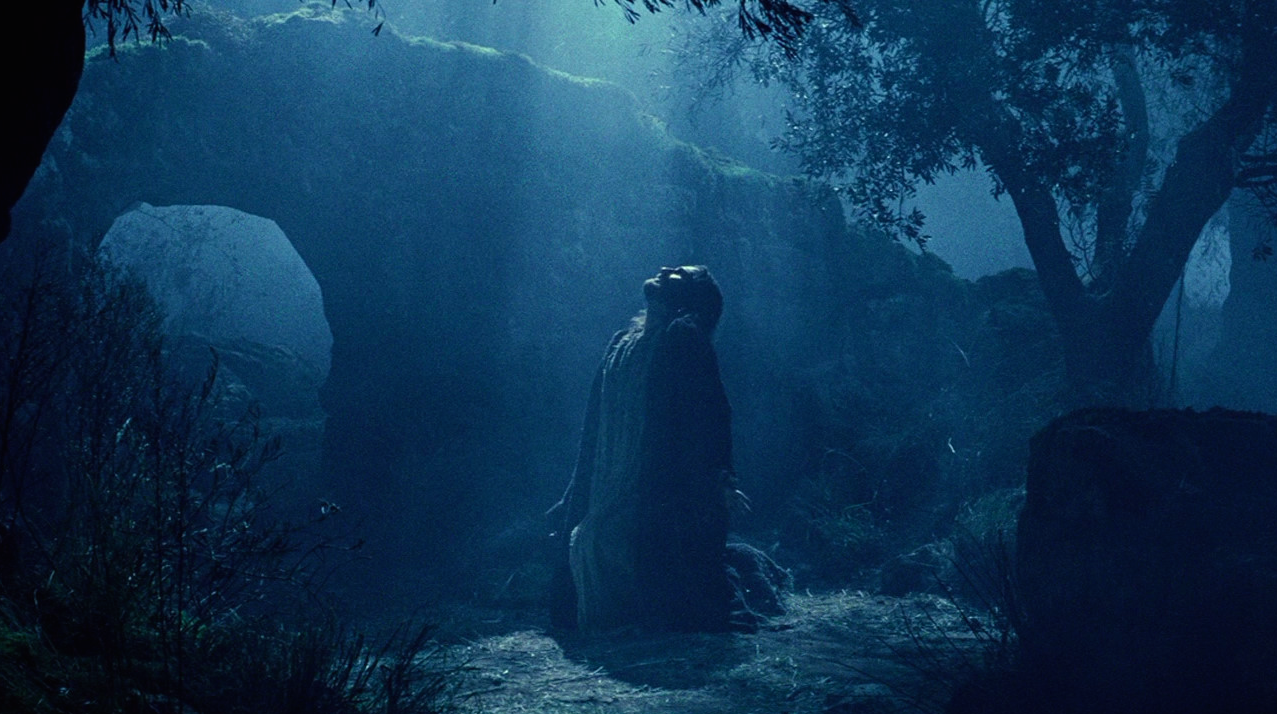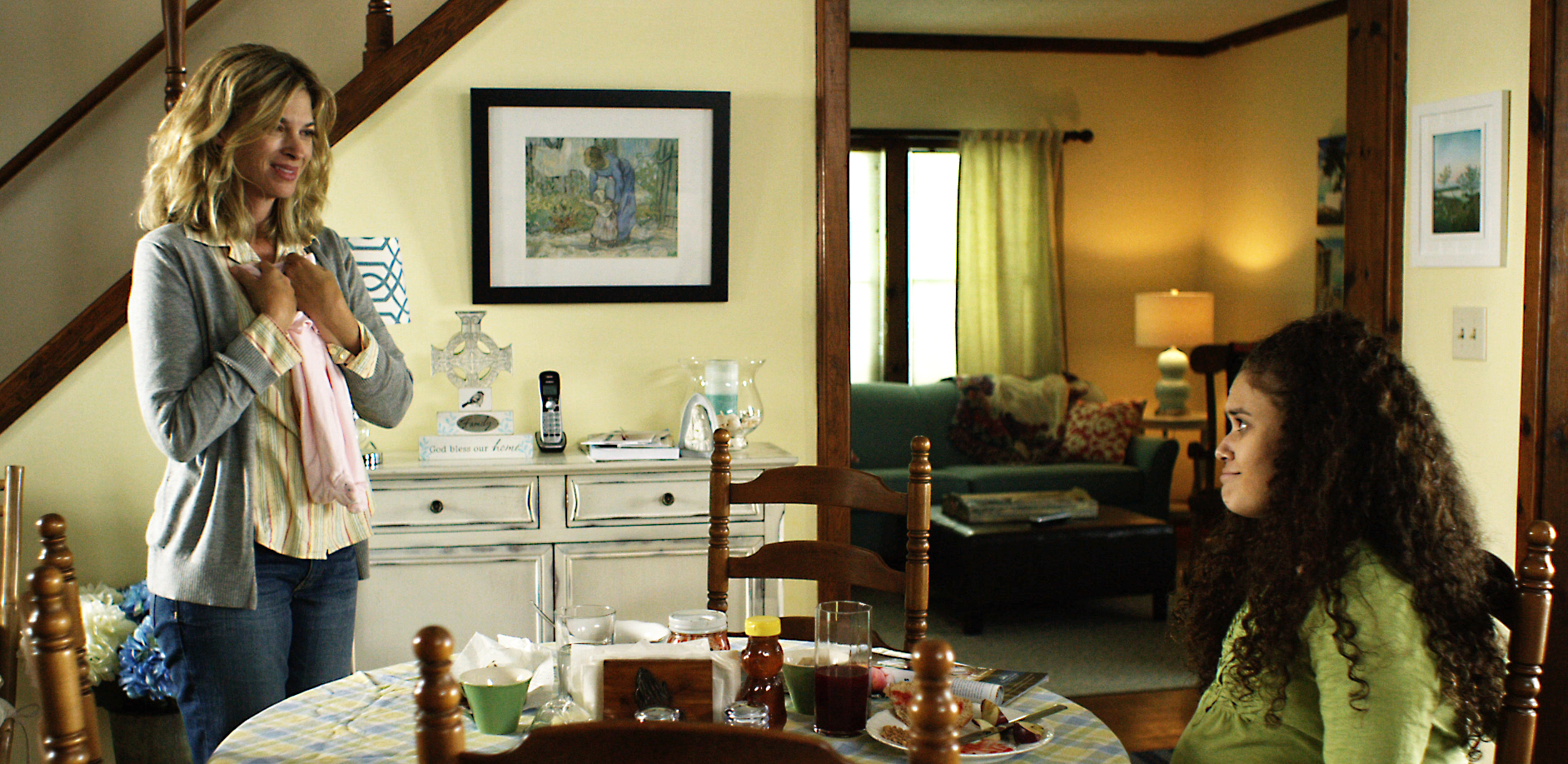Last weekend, the Pure Flix-produced, inspirational drama Do You Believe? opened in theaters, and if you’re a regular moviegoer, chances are you didn’t see it. You might not have even heard of it. As its title suggests, Do You Believe? is about religion. More specifically, it’s a religious film, spreading messages preached by Evangelical Christians across America to appeal to those very same Christians. It’s part of a growing genre of faith-based films made to target this largely conservative religious community, and while that’s a pretty specific niche, the business model has proved surprisingly profitable of late.
In 2014—a watershed year for the Christian film industry—nineteen Christian films received theatrical releases, almost double the previous record in 2006. Of those, eleven films made over $1 million, and four made over $30 million. While earlier Christian films like Fireproof, Facing the Giants, and Courageous had seen this kind of success, to have so many become successful all in one year was unprecedented. Beginning with Son of God, a recut version of History’s The Bible miniseries, and throughout the year to Kirk Cameron’s Saving Christmas, audiences consistently came out in droves to see films made by Christians, for Christians.
Evangelical Christian films date back to the silent era, when Protestants saw cinema’s potential as a sermonizing tool for their congregations. In the 1940s, Youth for Christ magazine editor Ken Anderson built a studio for the production of Christian films. In the 1950s, Reverend Billy Graham founded World Wide Pictures. This subsidiary of the Billy Graham Evangelistic Association produced and distributed hundreds of films over more than half a century. With the advent of home video in the 1980s, the theatrical market for Christian films largely dried up and the focus shifted to the video and made-for-TV formats. That is until the early 2000s when one film changed everything.
In the weeks leading up to Easter in February 2004, the hottest topic of discussion across America was a mid-budget independent film shot in two dead languages about the final days of Jesus of Nazareth. Mel Gibson’s The Passion of the Christ arrived in a storm of controversy, criticism, and an $84-million opening weekend. The film went on to gross over $370 million at the domestic box office, an unsurpassed record for an R-rated picture. Its commercial success served as a loud wake-up call. In every corner of America lay a vast, untapped market of eager, movie-going Christians.
Stories of Evangelical congregations in the Bible Belt being bused en masse to screenings of The Passion of the Christ caused quite a stir in the movie industry. Several studios stood up and took notice. They saw the potential for a niche genre: films made by Christians, featuring overt religious content and messages, and marketed directly to conservative Evangelical Christians. 20th Century Fox created its own faith-based label, Fox Faith, with the intent to make and distribute several Christian films theatrically each year. They saw mild success, but the experiment had died out by 2008. Walt Disney and Walden Media had great success mobilizing Evangelical Christians to go see The Chronicles of Narnia: The Lion, the Witch and the Wardrobe in 2005, but were unable to maintain that audience for the film’s two sequels. Hollywood had gone too big too soon.
Already a successful producer of Christian television programming, Michael Scott and his business partners David A.R. White and Russell Wolfe saw a different, more independent path. “We saw the broader market, we saw that they were hungry for it, and quite frankly they weren’t being served very well,” says Scott. In 2005, the trio founded Pure Flix, a Christian film production and distribution company not unlike its forerunners in the 1940s and 1950s. They’ve since made a magnitude of inspirational dramas, comedies and parables with religious messages, and even some Book of Revelation-inspired apocalyptic action films. In only a few years, Pure Flix became the largest distributor of evangelical Christian films in the world, according to Scott.
For almost a decade, Pure Flix has specialized in releasing films through direct-to-video, television, and other home-media channels. In 2010, after steady growth year over year, the company dipped its toe in the theatrical market with a film called What If…, an inspirational drama starring Kevin Sorbo about a godless, greedy businessman who wakes up in an alternate reality in which he’s the pastor of his hometown church, and married to his old college sweetheart. What If… played in about 80 theaters and pulled in over $800 thousand in box-office receipts. Building on that film’s success, Pure Flix released God’s Not Dead in 2014 in over 1,800 theatres. Produced on a budget of $2 million, the film grossed over $60 million.
“A lot of God’s Not Dead‘s success was no doubt an explosion,” Scott explains. There has to be more to the story, though. Resonating with the audience is key for any film, but it’s absolutely crucial to the niche Evangelical Christian market, for which the values and messages of a film are easily as important as its story. Scott says Pure Flix has honed in on exactly what gets its key demographic of church-going Evangelical Christians fired up, learning from the successes and failures of over 80 film releases. That learning process no doubt continues right through their release of Do You Believe?, which opened in more theaters than God’s Not Dead the year before, but to less than half that film’s opening weekend gross.
That kind of unpredictability is itself unsurprising, and playing to such a specific audience is hardly easy. Look no further than the domestic box-office failures of Noah and Exodus: Gods and Kings, two films made by non-Christians, released by major Hollywood studios last year, and marketed to mass audiences. Both films also attempted to galvanize an Evangelical audience starved for big-budget Biblical epics, but conservative Evangelical Christians can be notoriously picky when it comes to assessing accurate representations of their beliefs on screen. Jordan Diepersloot, the pastor at Via Church in Fresno, avoided both films due to their bold deviations from the Biblical text. “That Biblical story had a point to it and I think [the films] miss that,” Diepersloot says. The worry is that Christians and non-Christians alike will watch these films and get the wrong impression of what’s actually in the Bible, creating confusion, and potentially distancing audiences from Christianity.
Diepersloot tries to see what he deems as more “authentic” Christian films when he can make time. “If I have a congregation of people who are most likely going to see a movie because it has the label ‘Christian’ behind it, I like to be aware of what it is,” he says. The inspirational Christian messages behind the films are something he can often get behind. An example is the Sony-financed Heaven is for Real, based on the best-selling book by Todd Burpo, about his four-year-old son’s visits to heaven during a near-death experience. The film was a huge success and an example of Hollywood getting it right when producing films for Christians. “That’s a movie that makes people feel some sense of hope for those who’ve lost loved ones,” says Diepersloot.
For Alyse Pugh, a student at Biola University, an Evangelical Christian, liberal-arts college in California, films like Heaven is for Real also serve as a kind of political act. “In culture, [Christians are] viewed as judgmental bigots who don’t listen to anyone and just want to push our own agenda. Them bringing up heaven as a reality, and that everyone is going to have face that some day, that was really bold of them and I respect that,” she says.
The common feeling of marginalization in Evangelical Christian communities is heavily present in many of these films, whether they’re dramas, comedies or even action films. In fact, sometimes it’s their overriding theme. In last year’s blatantly absurd and literally paranoid thriller Persecuted, a megachurch pastor is framed for murder by a cabal of powerful government officials hell-bent on destroying Christianity in the United States. Other films like God’s Not Dead present an only slightly more realistic vision of American culture, in which religion and Christianity are flatly demonized in the face of growing secularity. Even Do You Believe? features a plot in which self-professed humanists take an EMT to court after he gives last rites to a dying man.
“One of the threads that runs through a lot these films—particularly the ones that are not the studio hybrids or bought out by the studios and fit toward a more general audience—is some sort of persecution theme or complex,” says Kenneth Morefield, an Associate Professor of English at Campbell University and film critic for Christianity Today. “It reinforces the perceptions of a subset of Evangelicalism at the moment that we’re persecuted, marginalized, silenced, [and] caricaturized in mainstream entertainment.”
While notions that Christians in the United States are a marginalized group may seem fanciful when over 70% of Americans identify as Christian and over 50% claim to regularly attend church services, many still feel it’s true. Diepersloot, for example, identified strongly with the protagonist in God’s Not Dead, a young Christian student who bravely stands up to a tyrannical philosophy professor threatening him with a failing grade should he not admit that God is, in fact, dead. “You know it happens pretty often,” says Diepersloot, who personally experienced his philosophy professor belittling his students’ intelligence for believing in religion. “He would even tell stories about how his sister was a Christian, and how she was the least smart of the children in their family.”
Whether or not it’s an accurate representation, the persecution complex so prevalent in Christian cinema resonates with a subset of Christians in America. “It’s definitely clear that there is an audience, and it’s not an insignificant one that feels it’s true, that feels disaffected, and feels as though they don’t see themselves on the screen,” says Morefield. That moviegoers, eager to see themselves represented as heroically overcoming nasty secular-humanist villains on screen, have flocked to Christian films that validate their world view.
For many Christian moviegoers, Christian films provide a great contrast to the secular liberalism of mainstream Hollywood. “50 Shades of Grey is skyrocketing with viewers, and I think Christian films bring wholesome, edifying, family and biblical values to lighten things,” says Pugh. In the eyes of this niche-but-growing audience, Christian films stand as a virtuous alternative to the debauched values of Hollywood and the secular society at large.
Not everyone sees it that way, though. Morefield finds the lack of diversity and even reality in many Christian films troubling. “It’s mostly a white, conservative, upper-middle class mirror—perhaps slightly idealized mirror—to the Christian audience of how they want to perceive themselves, or how they want to be perceived.” He believes contemporary Christian films are comparatively more socially conservative (rather than theologically conservative), playing to a relatively insular community. Even more troubling for Morefield is that these films aren’t truly evangelical. “They’re not at all directed toward those outside the Church,” he explains.
Scott disagrees with this assertion. “God’s Not Dead has been seen by about twenty million people,” says Scott. (The estimate is that only half that number saw the film at a theater.) “I get testimonies everyday: ‘We showed God’s Not Dead and we doubled our church congregation.’” Though hampered by smaller marketing budgets than the big studios, these films are, in Scott’s words, “incredible evangelistic and outreach tools.” Members of church congregations are regularly encouraged to take a neighbor or a coworker to such films.
Whether Scott is correct or not, the real trouble with using the recent string of Christian films as tools for evangelism is that, on the whole, they’re not very good. The films are regularly dismissed or attacked by critics, and mainstream audiences seem averse to the obviously low budgets, lousy acting, made-for-TV aesthetics and blatant preaching in most Christian films. Making a Christian film isn’t very hard, but making a good Christian film is a much tougher nut to crack.
Continue to Part 2, in which Corey Atad explores in greater detail the aesthetic considerations of Christian films, and looks ahead to the future of religious cinema.

























2 thoughts on “The Gospel According to Cinema, Part 1: The Rise of Christian Film”
Pingback: Everybody’s Talkin’ 3 – 27 (Chatter from Other Bloggers) | The Matinee | Cinematic Passion & Perspective
Pingback: A Deep Dive Into Christian Movies, Part 2